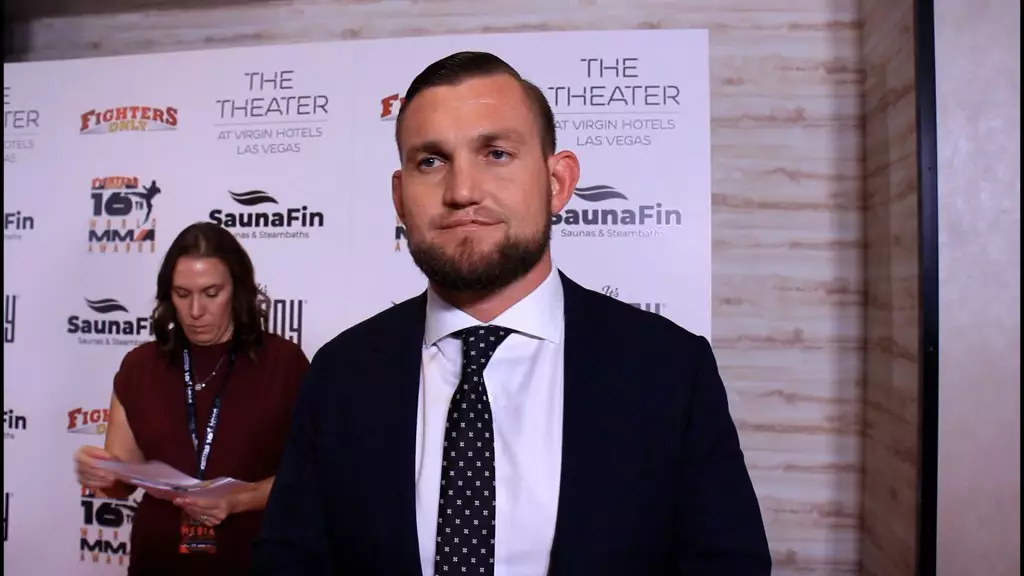Ian Heinisch, a name synonymous with determination and resilience in the world of Mixed Martial Arts (MMA), recently made headlines for more than just his prowess in the octagon. His candid announcement in July 2023 regarding an indefinite break from MMA, which he now describes as a “retirement due to brain trauma,” has sparked a conversation about the unseen tolls of combat sports. For over a year and a half, Heinisch wrestled with the debilitating effects of accumulated injuries, choosing silence until the weight became unbearable. After a series of alarming incidents—such as constant headaches and moments of confusion—he recognized the urgent need to prioritize his mental health and well-being.
Heinisch’s journey highlights a stark reality within the MMA community: brain trauma is not just a statistic. It’s a lived experience that can alter the course of a fighter’s life. The decision to step away from the sport he loves was anything but easy, yet over time, the necessity of this choice became clearer. As he noted, “At one point, I didn’t care if I fought again… If you’re struggling with that, man, I’m telling you, rest your brain.” His words resonate deeply, emphasizing the importance of listening to one’s body—a lesson not only for fellow fighters but for anyone engaged in high-risk activities.
The world of professional fighting is often glorified, showcasing athletes as heroes and champions. However, beneath the surface, the emotional and mental toll is immense. Every punch landed on a fellow fighter contributes to a cumulative risk that can lead to serious health complications. Heinisch’s story strips away the bravado often associated with combat sports, revealing a vulnerable side that many may overlook.
After stepping back from MMA, Heinisch faced an identity crisis. For a decade, his life revolved around training, competing, and the adrenaline of each bout. Now, he found himself needing to redefine who he was outside of the fight. This transition can be particularly challenging for athletes who have invested their entire lives into their sport, leaving many without a clear path forward after retirement. Yet, Heinisch highlights a crucial aspect of recovery: the exploration of life beyond competition. Through various treatments, including stem cell therapy, he has begun to regain his sense of self, embracing opportunities in different fields, such as cryptocurrency and business endeavors.
Heinisch’s reflections on his career are filled with gratitude, recognizing that while his journey in the UFC may have been cut short, it has not been in vain. He emphasizes that “God has different plans,” which suggests a mature acceptance of his circumstances and an understanding that every ending paves the way for new beginnings. This outlook is vital for not only him but for countless fighters grappling with similar issues.
The fact that he feels fortunate to have had a platform to share his story exemplifies the mission many athletes strive for outside the ring. Heinisch’s renewed focus on business offers him a chance to forge a new identity while simultaneously advocating for the importance of mental health awareness in sports. His story can inspire younger fighters to prioritize their long-term well-being above immediate victories, advocating for systemic changes within the sport to promote safer practices and support for athletes’ mental health.
Ian Heinisch’s departure from MMA is a compelling narrative that upholds the importance of mental health, particularly in high-risk sports. His experience stands as a cautionary tale and a beacon of hope, reminding fans and aspiring fighters that the fight should never come at the expense of one’s health. By sharing his journey, Heinisch not only brings awareness to the potential dangers of brain injuries but also encourages others in the sport to prioritize their health over glory. Ultimately, his transition into new ventures underscores a vital truth: life after fighting can be rich, fulfilling, and full of promise if one is courageous enough to pursue it.

